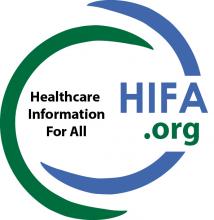
7 November until 2 December 2016. Join HIFA today to follow the discussion...
The Manila Declaration, which was strongly influenced by HIFA discussions in 2015, noted that 'despite a growing momentum towards free and open access to research literature, and important initiatives, such as HINARI Access to Research In Health Programme and IRIS (Institutional Repository for Information Sharing) ... there continue to be many challenges, limitations and exclusions that prevent health research information from becoming freely and openly available to those who need it'.
http://www.hifa.org/sites/default/files/publications_pdf/Manila_Declaration_2015_FINAL_August_242.pdf
There is a growing consensus that open access (OA) (via both journals and repositories) is the way forward for long term sustainable access, and to enable the use and reuse of published research. Bibliometric research shows strong advantages for those whose work is made available OA and many people also see OA as an ethical imperative which promotes equity globally. More and more publishers, funding agencies, universities and governments are supporting, and in some cases requiring, OA publishing of research.
In the meantime, access initiatives such as HINARI, EIFL and INASP provide access in LMICs to journals that are still restricted access.
The HIFA working group on Access to Health Research now invites HIFA members to consider and reply (hifa@dgroups.org) to the following questions:
1. What are the most important priorities for access to research in LMICs - i.e. just free access, or the ability to reuse published research in various ways (e.g. print it, distribute to students or colleagues for reuse in other publications)?
2. Is it acceptable to have full-text access available only via academic institutions or is much broader access important?
3. What are the most important technical requirements for access - e.g. low bandwidth versions of articles?
4. What more can be done to address misconceptions about, and discrimination against, OA?
We are grateful to Elsevier and The Lancet for their support.

